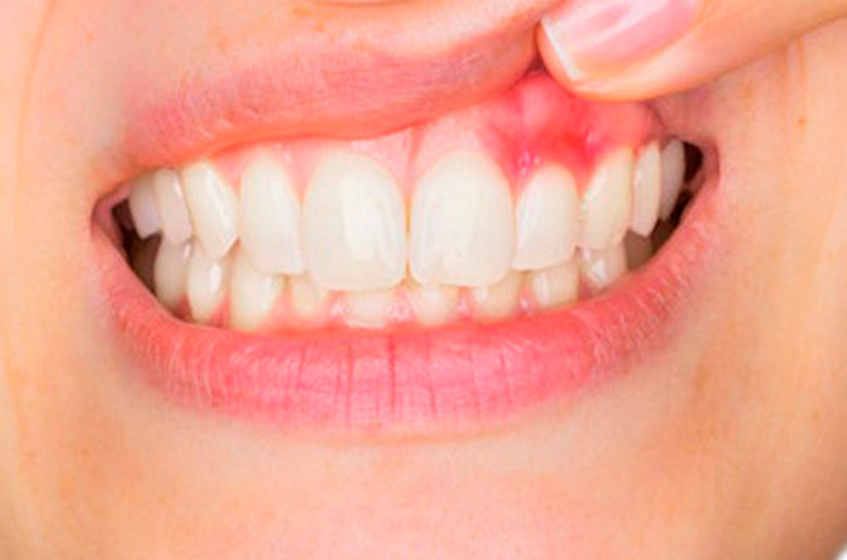

Gum disease is a relatively frequent disorder in which the gums swell, become irritated, or get infected. Most individuals have some form of gum disease, and most people have had it at least once. In children, it is far less prevalent. Bleeding on the gums (especially when brushing) and bad breath are among the most common symptoms of gum disease. These symptoms may not seem or feel like a reason for concern however can lead to much more serious complications if not treated. Nevertheless, aforementioned symptoms mainly occur in the early stages of the gum disease, which is called gingivitis and can easily be treated without any further serious complications if diagnosed early. Gingivitis can progress to periodontitis if it is not treated. This has a devastating effect on the tissues that support and retain teeth in place, therefore substantial damage in the jaw bone may occur furthermore gums may fail to hold the teeth and the teeth can become loose and fall out over time.
Main cause of gum disease is plaque AND TARTAR on the teeth. In absence of proper and consistent dental hygiene remnant bacteria on the teeth can pile up and form plaque,which can lead to a wide range of dental problems from cosmetic to periodontal. Therefore maintaining proper dental hygiene by brushing at least 2 times a day, flossing and seeing a dentist every 6 months for a regular dental check-up are key for oral health.
Most common symptoms of gum disease are swollen gums, bad breath, receding gums, loose teeth, pain while eating, increased sensitivity in the mouth and bleeding on the gums while brushing (or spitting out blood). In the initial stage of the gum disease, called gingivitis those symptoms can be mild or some of them does not even occur at all, yet neglection of the proper dental treatment can lead to periodontitis, a more serious condition on the gums with much severe consequences (such as permanent damage on the jaw bone or teeth loss).
With regard to your specific condition and the dentist's evaluation, particular treatments might be needed to treat gingivitis or periodontitis.
Treatments include:
• Dental cleaning
• Teeth scaling
• Root Planing
Further treatment might be needed depending on the severity of your condition. This includes particular types of oral surgery, such as:
• Flap Surgery
• Bone Grafting
• Soft Tissue Grafting
• Bone Surgery
• Guided Tissue regeneration